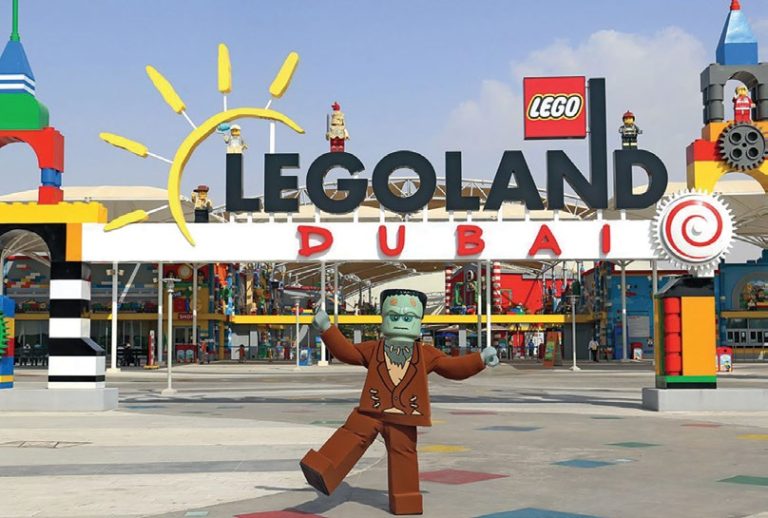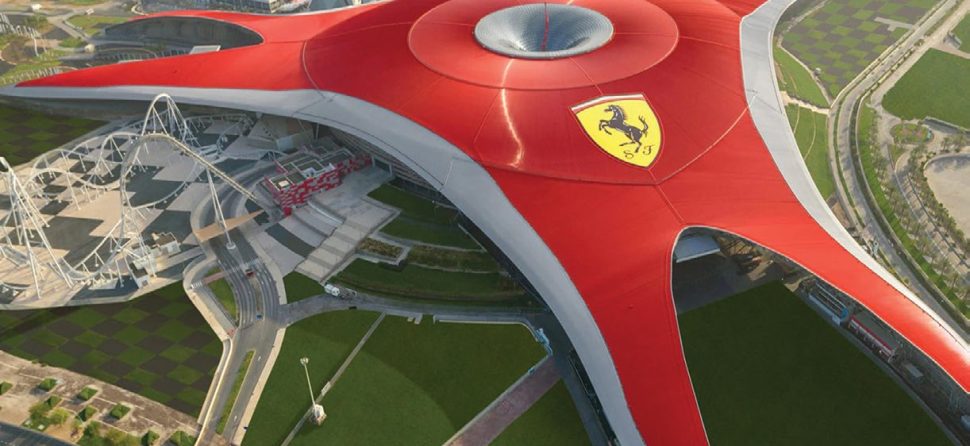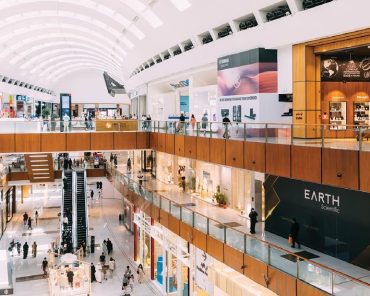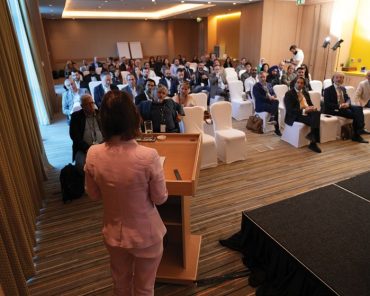Location Based Entertainment in the Middle East
Opportunities and Challenges
By Adeeb Alghoufary
Location Based Entertainment in the Middle East: Opportunities and Challenges

Location-based entertainment, or LBE, is a growing industry, and it is easy to see why. After all, who doesn’t want to trade reality for immersion in a world vastly more exciting than dayto- day life? Advances in technology, in particular, 5G networks and VR/AR, are expected to make these experiences even more mind-blowing in the coming years. To be sure, COVID-19 slowed this trend, since safety restrictions forced many LBE venues to close or limit their capacity. However, some businesses have risen like a phoenix from the ashes by adapting so as to offer virtual experiences or outdoor attractions that can be enjoyed safely. A Research and Markets report valued the global location-based entertainment market at a whopping $46.8 billion in 2020 and projected that this market will grow at a compound annual growth rate (CAGR) of 14.6% from 2021 to 2028. The Middle Eastern region has embraced the LBE trend enthusiastically, attracting significant investments from various companies seeking to capitalize on its vast potential. Industry experts predict that the Middle Eastern and African market will expand from US$ 44.40 million in 2022 to US$ 68.95 million by 2028 for a CAGR of 7.6% during the 2022-2028 period. Various factors account for the increasing popularity of LBE, including rising levels of disposable income levels among consumers in the region and a growing number of tech-savvy young people eager for novel and exciting experiences. Tourists to the region tend to visit Dubai and Abu Dhabi in the United Arab Emirates and Riyadh in Saudi Arabia. Accordingly, in February 2020, Saudi Entertainment Ventures (SEVEN) decided to contribute to Saudi Vision 2030, a public investment fund involved in the development of several entertainment destinations in Riyadh. In the UAE, several world-class LBEs testify to the thriving business landscape. Dubai’s IMG Worlds of Adventure, a state-of-the-art indoor amusement park, features four exquisitely themed zones, including Marvel, Cartoon Network, IMG Boulevard, and the Lost Valley. Dubai Resorts and Parks, another noteworthy entertainment complex, features a plethora of themed attractions, such as Motiongate, Bollywood, Legoland, Legoland Water Park, and Riverland Parks, in addition to luxurious hotels and resorts such as Lapita Hotel and Legoland Hotel, which offers Lego-themed rooms and activities for children. Likewise, Warner Bros. World Abu Dhabi offers an exciting array of rides and attractions based on iconic DC Comics characters, such as Cartoon Junction, Gotham City, and Metropolis; Ferrari World Abu Dhabi boasts the world’s fastest roller coaster; and Yas Waterworld features the largest surfable sheet wave anywhere, which attracts thrill-seekers from all over the world. The increasing LBE development in Saudi Arabia includes several remarkable projects in progress.

Qiddiya Entertainment City, near Riyadh, is an ambitious venture designed as a premier entertainment and leisure destination complete with theme parks, sports facilities, and cultural attractions. Additionally, Six Flags Theme Park has committed to the development of a theme park within the city. NEOM, the cutting-edge city being built in northwestern Saudi Arabia, boasts modern infrastructure and a broad range of LBE facilities, including a giant artificial moon and a Jurassic Park-style attraction. The Red Sea Project, a luxurious tourism development on that coast, features high-end resorts, hotels, and a plethora of entertainment and leisure facilities, such as golf courses, spas, and water parks. The entertainment industry in Qatar has also undergone tremendous growth in recent years thanks to the country’s position as another top tourist destination and its burgeoning population. The surge in demand for both indoor and outdoor entertainment venues has inspired numerous world-class attractions, including the highly acclaimed Angry Birds World theme park in the iconic Doha Festival City. Furthermore, for the 2022 FIFA World Cup, which attracted millions of visitors, Qatar invested significantly in cutting-edge entertainment experiences that cater to the diverse tastes and preferences of locals and tourists alike. This trend is expected to continue as entrepreneurs and investors looking to tap into the booming entertainment market in Qatar create exciting business opportunities. Furthermore, Egypt is also embarking on exciting LBE projects that blend ancient history with modern amenities to deliver a unique experience to visitors. Noteworthy examples include the Mall of Egypt and the Grand Egyptian Museum, which is expected to be the largest archaeological museum in the world. The LBE industry in the Middle East, then, is experiencing significant growth driven by favorable economic and demographic factors. As a new generation of digital natives seeks fun and interactive experiences, the market is becoming increasingly attractive to operators in the LBE sector. At the same time, challenges remain, including a limited market, cultural sensitivities, insufficient infrastructure, and high operating costs. Countries such as the UAE, Qatar, and Saudi Arabia have invested heavily in infrastructure, but operators still need to consider carefully the costs and potential barriers to entry into this emerging market.
Overall, though, for those committed to careful planning and investment, the Middle East has the potential to become a major player in this sector of the global entertainment industry. In sum, this is an exciting moment in the development of the LBE industry in the Middle East. With growing demand and ever more players entering the market, the region has the potential to become a major global destination. Going forward, by facing the challenges described here, the industry can realize its full potential.
Facebook
Twitter
LinkedIn
Source: Total Licensing 2023 Spring Edition
By Amer Bitar Markettcom Ltd CEO
CONTACT
Sheikh Zayed Rd, Rawdat Al Wasl Building, Office 310. Dubai, UAE









